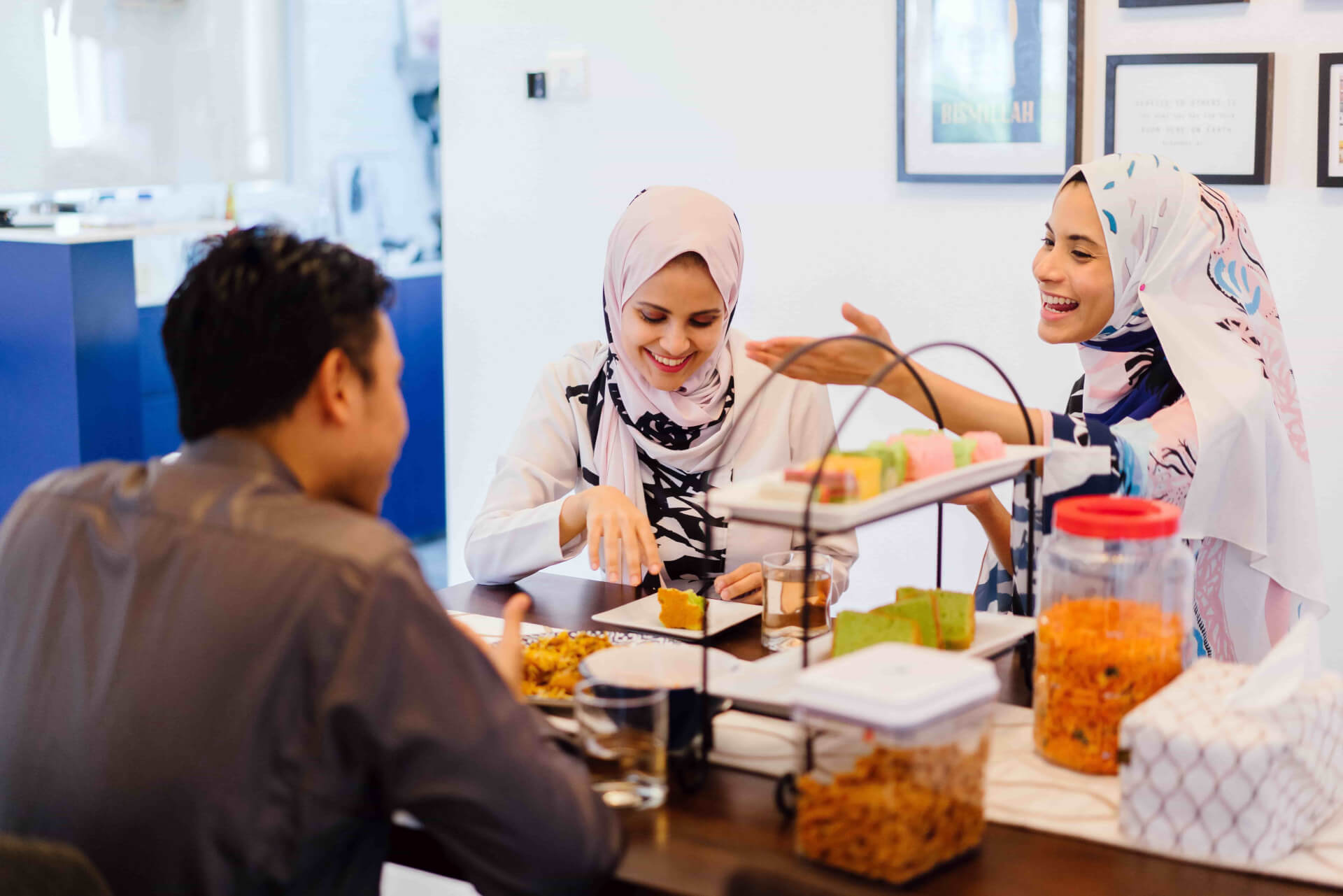During Ramadan, the holy month of the Muslim Calendar, Muslims fast, which means that they do not eat or drink during the day. They only eat one meal (the ‘sahur’) just before dawn and another (the 'iftar') after sunset.
After a long fast, you may want to treat yourselves to good food. However, it is important to make sure that the food contain essential nutrients & minerals that your body needs. Thus, the quality of your diet is especially important during Ramadan.
Ways to eat healthy and manage your weight during Ramadan
- Never skip sahur (dawn meal). Sahur should encompass a wholesome meal that provides long lasting energy throughout the day. Include complex carbohydrates, high fibre foods, adequate protein and healthy fats in your diet.
- It is recommended for you to eat 2-3 dates to break the fast as they provide natural sugars for energy as well as source of fibre.
- Start with mini iftar before eating the main course. Have your soup and ulam first as these are low in calories.
- Practice the quarter-quarter-half healthy plate concept for your main meals.
- Always include fruits and vegetables at both sahur and iftar. Aim for five or more servings a day.
- Opt for healthy cooking methods such as stir-fried, steamed, grilled, baked, or soupy dishes.
- Drink sufficient fluids to replenish fluid loss during the day. Aim for 8 glasses a day. Drink adequately between iftar and sahur meals. Choose water, minimize intake of caffeinated drinks (coffee, tea, soda) as they are diuretic and may lead to dehydration.
- Try to minimize consumption of sugar-laden food and sweetened beverages that contain additional sugar and calories, which may lead to weight gain.
- Avoid over-eating. Eat reasonable food portions during berbuka and allow for light supper (moreh) after tarawih.
- Eat slowly and chew your food well. This allows for better digestion and reduced calorie intake by increasing the satisfaction you get from your meals.
- Limit intake of highly salted foods to reduce thirst and risk of dehydration.
- Minimize intake of deep-fried, high fat, and creamy foods as they are energy-dense and may lead to weight gain.
- Light physical activity (including tarawih) is encouraged during the fasting month.
Ramadan is the best time to reset your eating habits and to practice self-control on your diet. It is advisable to try to maintain these practices even after Ramadan.


